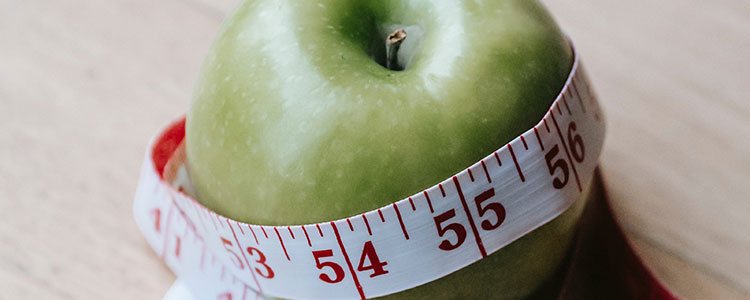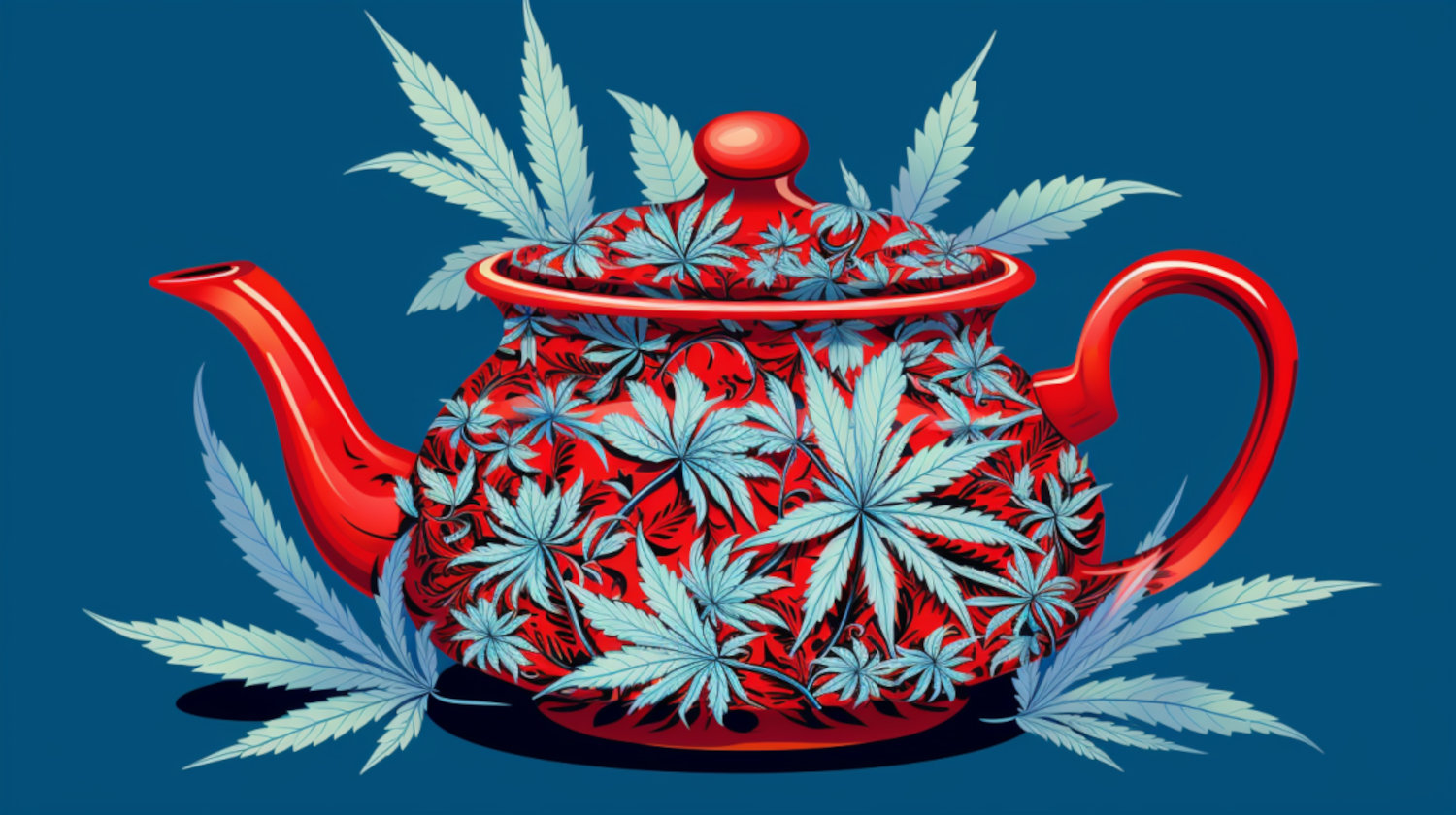In This Article
- CBD and Weight Loss: What Does Science Say?
- CBD for Weight Loss: Is It Effective?
- What are the Potential Risks of Using CBD for Weight Loss?
- Safety Tips When Using CBD for Weight Loss
- CBD Products for Weight Loss
- Is CBD legal?
- Which is more effective for weight loss: THC or CBD?
- Can CBD get me high?
- Can I overdose on CBD?
- What is the minimum age to purchase CBD products?
- Can I travel with CBD?
- Does CBD show up on drug tests?
- What CBD strains are best for weight loss?
- References
Weight can be a sensitive topic for many people. Many people struggle to find balance between the constant flow of health fads and easy access to unhealthy food options. Regardless of the cause, the reality is that a healthy weight is an essential aspect of maintaining a healthy lifestyle.
The CDC reported that from 2013 to 2016, over 60% of obese adults, 40% of overweight adults, and 26% of underweight adults had tried to lose weight. With these numbers, the symbiotic dynamic between weight and the endless weight-related products flooding retail shelves is easy to understand. Weight loss products are so prevalent that they have even entered the cannabis market.
Although high-THC products have a long-standing reputation for increasing appetite, the industry has started to look towards the cannabinoid’s counterpart, CBD, for a potential solution. CBD for weight loss is an increasingly popular topic for cannabis consumers, and many wonder if there’s any validity to the claims that it may be a solution to their weight struggles.
CBD has been studied for its potential to significantly treat various health issues like anxiety, inflammation, pain, and even severe conditions of epilepsy. But can it help with weight loss?
CBD and Weight Loss: What Does Science Say?
The rise of CBD in wellness led the cannabinoid to find its way into weight loss regimens in recent years. According to anecdotal feedback, CBD and weight loss may have an unintended connection. While CBD isn't going to help you trim down on its own, it may help relieve pain and other exercise performance issues that can keep users from a healthy lifestyle.
Since limited research has been done on the topic, it's currently difficult to understand how CBD affects weight loss. However, select studies do suggest that there is potential. Results include a 2016 study from South Korea's Daegu University, which revealed CBD's potential for curbing obesity through its browning of fat cells and promoting lipid metabolism.1
Indirect results also suggest that CBD could help while performing physical activities as well as during the recovery phase. The use of CBD to reduce anxiety and stress2 might help some users focus during their workouts. CBD has also been studied for its potential to improve sleep patterns and manage pains in the body, both key for recovery.3,4
CBD for Weight Loss: Is It Effective?
Since no conclusive evidence supports CBD’s direct correlation to weight loss, most doctors wouldn’t consider it to be an effective treatment. Researchers have concluded that further research is needed. 5
CBD has shown some potential to affect the body in other ways that could affect weight and appetite.
One study showed that CBD positively impacts soothing the symptoms of insulin resistance and type 2 diabetes. While researchers found this promising, they also called for more research to be done to support its findings.6
Some studies have found that those who use cannabis have lower body mass index and reduced levels of inflammation.7 However, THC-rich cannabis also has a reputation for stimulating the appetite and causing a feeling most refer to as the munchies, and further research to understand their correlation fully.
Body weight can be highly affected by a number of different aspects including:
- Mental Health
- Job Setting
- Age
- Socioeconomic status
- Gender
- Eating Habits
- Culture
- Sleep
- Pre-existing conditions
- Genetics
- Medication
- Stress
Considering the body and its weight are sensitive to all these issues, it is difficult to pinpoint how effective CBD is in simply reducing body weight. As of now, CBD is not considered a weight loss aid, even if it may help some individuals alleviate stress and sleep issues often associated with weight gain.
If you are concerned about your weight and interested in using CBD, it’s best to discuss with your doctor to determine the appropriate and healthy steps to achieve your goal.
What are the Potential Risks of Using CBD for Weight Loss?

Since there is little research regarding how CBD affects weight loss, it is unknown if any side effects are linked between the two.
CBD on its own – especially at high doses – may result in adverse side effects for some consumers, like fatigue, diarrhea, vomiting, change in appetite, and may even affect organs like the liver.8 CBD may also interact with certain medications, so speak with a doctor before using this cannabinoid for any health-related issues.
Safety Tips When Using CBD for Weight Loss
When consuming any cannabis product, start with the lowest dosage you’re comfortable with, and add an additional dose if necessary.
It’s important to note that CBD can interact with certain medications, so it may be best to consult with a doctor who can guide you in the right direction for your health and weight. 9
CBD Products for Weight Loss

Currently, no CBD products on the market are specifically formulated to aid in weight loss. Other cannabinoids, like THC or THCV, may have minor effects on the body and hunger but won’t directly impact weight. Terpenes also influence how cannabis affects the body, and many consumers look for products that enhance the feeling they’re trying to achieve, like increased energy or motivation.
With limited research, we cannot ethically recommend CBD products specifically for weight loss. However, the products listed below may indirectly affect the body and weight.
CBD Gummies. Wyld – Edible – Strawberry 20:1. Wyld produces tasty, memorable gummies that deliver consistent consumer experiences. Their strawberry 20:1 CBD gummies are formulated to help with mental clarity and ease body pain.
CBD Oil. Yummi Karma – Tincture – Cloud Nine Drops | Mind + Body Focus. These drops are high CBD at a 4:1 (CBD:THC) ratio and formulated with other natural botanicals to enhance cognitive function and promote productivity.
CBD Flower. CBD flower can be hard to come by in many recreational dispensaries. If you are having trouble finding high-CBD cultivars, it may be best to search for high-THC options rich in terpenes that may help with exercise, like Sour Diesel, rich in limonene or myrcene.
CBD Vapes. Alpine – Vape – Cannatonic | CBD. Alpine offers a high-CBD Cannatonic vape. It has been reported to help with issues like insomnia, relaxation, and pain.
Is CBD legal?
It depends on if it’s hemp-derived or high-THC cannabis-derived. Hemp-derived CBD is legal throughout the U.S. due to the Farm Bill's passing, while high-THC cannabis-derived CBD is only legal in states where medical or recreational cannabis laws are in place.
Which is more effective for weight loss: THC or CBD?
There is not enough research to support whether THC or CBD is an aid for weight loss. Their effects on body weight may indirectly correlate with how they affect the body and its functions, like pain and mood.
Can CBD get me high?
No. While CBD may be classified as psychoactive because it affects the brain, it won’t feel like the same experience THC causes. CBD is considered non-intoxicating and makes an ideal choice for people looking to get some of the therapeutic benefits of cannabis without the high.
Can I overdose on CBD?
There have been no reported cases of anyone overdosing on CBD. A beginner dose of CBD is anywhere between 1 to 5 milligrams, though many consumers who have met with a medical marijuana doctor are comfortable starting closer to 15 mg. That said, researchers tested up to 1500 milligrams of CBD a day and found no adverse effects.10 By some estimates, it would take up to 20,000 mg of CBD to reach toxicity.
What is the minimum age to purchase CBD products?
There is no federal age limit to purchasing hemp-derived CBD products. Depending on the legal status of cannabis in your state, cannabis-derived CBD or minor cannabinoid-infused items like delta-8 may require a person to be at least 18 or 21 years old to purchase.
Can I travel with CBD?
If you travel within the United States, hemp-derived CBD products with less than 0.3% THC are likely safe to take along with you. Traveling with products containing more than 0.3% THC or high-THC cannabis-derived products is illegal within the U.S. and internationally.
Does CBD show up on drug tests?
If you are trying to pass a drug test, it’s best to abstain from cannabis usage. A pure CBD isolate may not cause a positive test, but remember that hemp-derived CBD still has slight traces of THC.
What CBD strains are best for weight loss?
No strain or cultivar has been proven to aid in weight loss. It may be best to look for a strain that can help reduce appetite or enhance your workout or the body’s recovery. Some cultivars are known for boosting energy levels, like Durban Poison or Gelonade, while others may be good for pain or muscle healing, like Wedding Cake or Cannatonic.
References
- Parray HA, Yun JW. Cannabidiol promotes browning in 3T3-L1 adipocytes. Molecular and Cellular Biochemistry. 2016;416(1-2):131-139. doi:https://doi.org/10.1007/s11010-016-2702-5
↩︎ - Henson JD, Vitetta L, Quezada M, Hall S. Enhancing Endocannabinoid Control of Stress with Cannabidiol. Journal of Clinical Medicine. 2021;10(24):5852. doi:https://doi.org/10.3390/jcm10245852
↩︎ - Shannon S. Cannabidiol in Anxiety and Sleep: A Large Case Series. The Permanente Journal. 2019;23(1). doi:https://doi.org/10.7812/tpp/18-041
↩︎ - Mlost J, Bryk M, Starowicz K. Cannabidiol for Pain Treatment: Focus on Pharmacology and Mechanism of Action. International Journal of Molecular Sciences. 2020;21(22):8870. doi:https://doi.org/10.3390/ijms21228870
↩︎ - Pinto JS, Martel F. Effects of Cannabidiol on Appetite and Body Weight: A Systematic Review. Clinical Drug Investigation. Published online October 1, 2022. doi:https://doi.org/10.1007/s40261-022-01205-y
↩︎ - Bielawiec P, Harasim-Symbor E, Chabowski A. Phytocannabinoids: Useful Drugs for the Treatment of Obesity? Special Focus on Cannabidiol. Frontiers in Endocrinology. 2020;11. doi:https://doi.org/10.3389/fendo.2020.00114
↩︎ - Cavalheiro EKFF, Costa AB, Salla DH, et al. Cannabis sativa as a Treatment for Obesity: From Anti-Inflammatory Indirect Support to a Promising Metabolic Re-Establishment Target. Cannabis and Cannabinoid Research. Published online July 9, 2021. doi:https://doi.org/10.1089/can.2021.0016
↩︎ - Huestis MA, Solimini R, Pichini S, Pacifici R, Carlier J, Busardò FP. Cannabidiol Adverse Effects and Toxicity. Current Neuropharmacology. 2019;17(10):974-989. doi:https://doi.org/10.2174/1570159X17666190603171901
↩︎ - Balachandran P, Elsohly M, Hill KP. Cannabidiol Interactions with Medications, Illicit Substances, and Alcohol: a Comprehensive Review. Journal of General Internal Medicine. Published online January 29, 2021. doi:https://doi.org/10.1007/s11606-020-06504-8
↩︎ - Iffland K, Grotenhermen F. An Update on Safety and Side Effects of Cannabidiol: A Review of Clinical Data and Relevant Animal Studies. Cannabis and Cannabinoid Research. 2017;2(1):139-154. doi:https://doi.org/10.1089/can.2016.0034
↩︎
The information in this article and any included images or charts are for educational purposes only. This information is neither a substitute for, nor does it replace, professional legal advice or medical advice, diagnosis, or treatment. If you have any concerns or questions about laws, regulations, or your health, you should always consult with an attorney, physician or other licensed professional.




